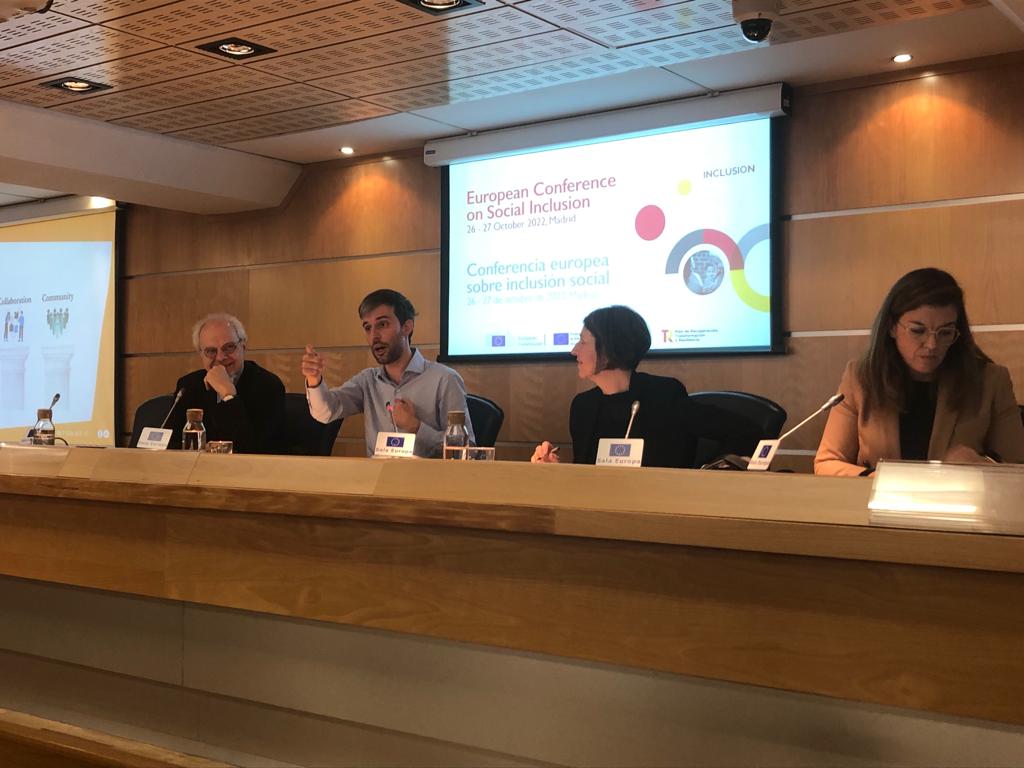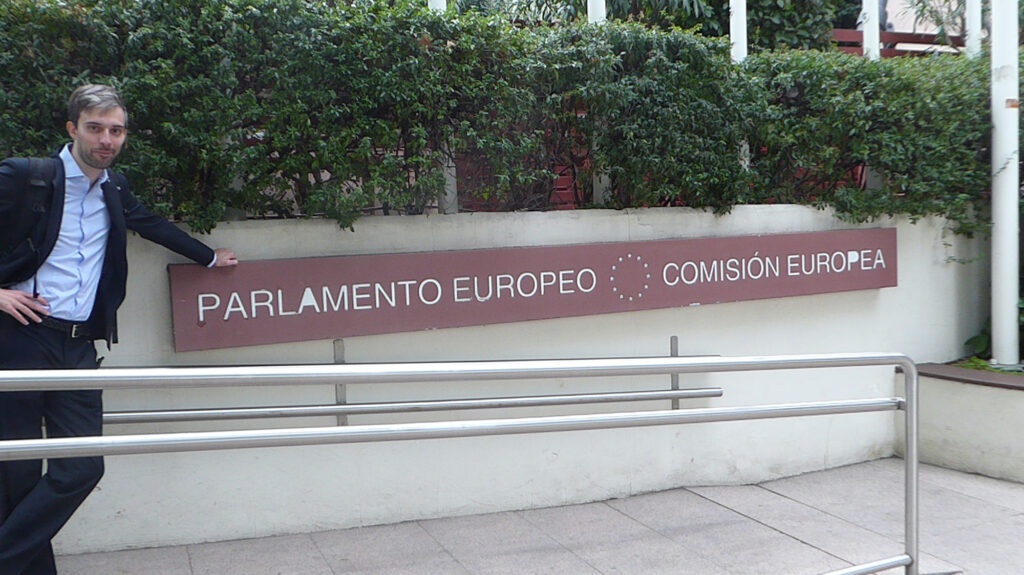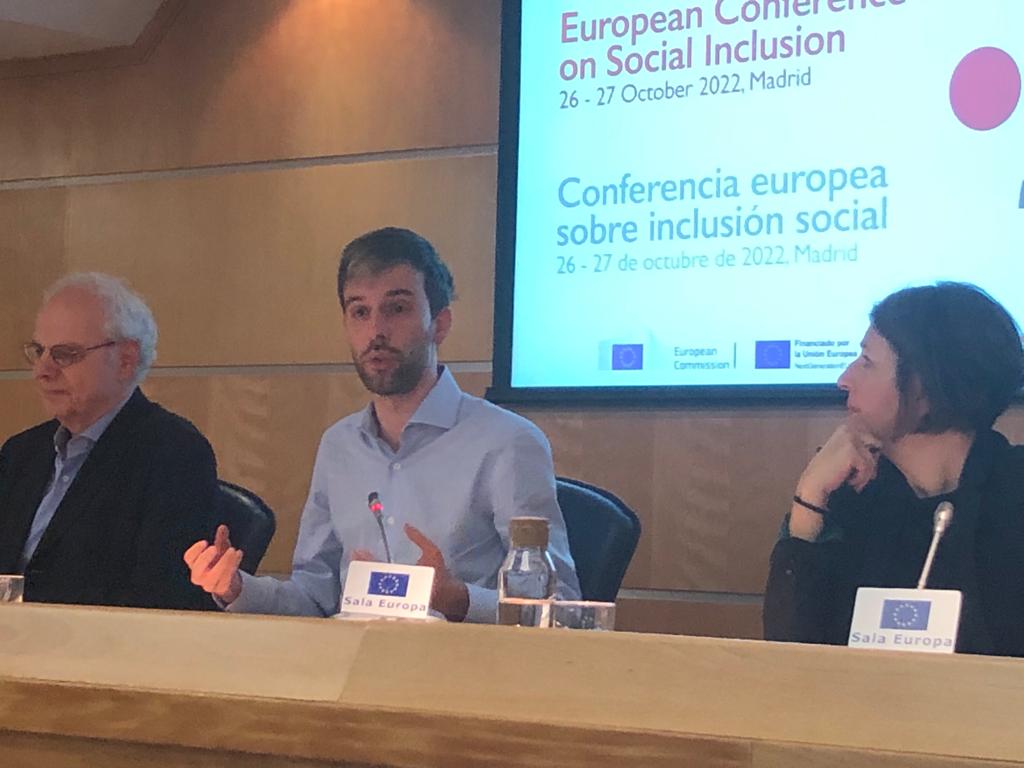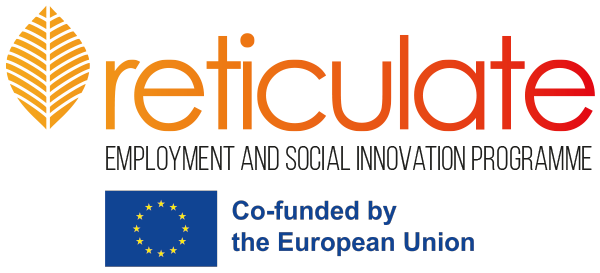
27 Feb Reticulate attended the 9th MINET Meeting
The meeting on basic income was held on 26 and 27 October 2022, organized by the European Commission, DG Employment, Social Affairs and Inclusion, through its network of experts, called MINET and which collaborates with national authorities responsible for implementing minimum income measures in member states.
During the seminar, the critical issues related to the lack of multidimensional management and the need to integrate services as a possible operational solution were discussed.
The Reticulate project was invited to participate in the 9th MINET Seminar, which was held in Madrid, jointly with another event organized by the OCSE /OECD on good design practices of social inclusion policies. Some of the projects co-funded by DG Employment, Social Affairs and Inclusion under the EaSI 2020 call “Establishing and testing integrated interventions aimed at supporting people in (the most) vulnerable situations”, including Reticulate, were presented and discussed in the scope of the seminar.

The central themes of the discussion concerned the importance of establishing integrated paths of social, health and work inclusion that were not based only on welfare measures. In fact, many of the participating States have already introduced a basic income, discovering in spite of themselves that this form of assistance is anything but decisive as it leaves uncovered a wide range of services and needs that income alone cannot cover. For this reason, an aspect underlined by many voices both by the Spanish authorities present and by the international speakers is becoming increasingly prominent, the need for a multidisciplinary and multi-sectoral approach that takes charge of the complex needs of users.
In addition to presenting the forms of income and assistance, the various speakers showed how the attention in the creation of the basic income was placed on different segments of the population depending on the country that introduced it; however it became immediately clear that all policy makers found themselves facing common criticalities not only in the structuring of this income but in the management of their social policies:
– Access barriers: treated especially (but not exclusively) by Hewing Immervoll (OECD) as well as by Carmen Maeztu Villafranca (Navarra autonomous community). In addition to underlining the importance of identifying them and facilitating their overcoming, the difficulty of intervening in cases where multiple barriers arise and which require the intervention of multiple entities, which are not always able to communicate and collaborate easily. In particular, during the intervention of the OECD, the idea of creating an index was discussed, configuring a tool that makes it possible to identify and “calculate” the access barriers, observing the causative regulatory principles, which ones can support the overcoming of the same, the ease of finding the necessary information\forms. Strongly linked to the theme of accessibility, communication was also discussed, i.e. getting your message to the target, in particular allowing people to demand a right, make them aware of the existence of a benefit and a service. In this context, functional practices have been highlighted, such as the direct engagement of companies in the creation of projects for beneficiaries as in the case of AUNA (Navarre-Spain) or the creation of ad hoc communication in the case of Dr. RafVan Gestel (Rotterdam-Netherlands).[AA1]
– Different user needs: The need to create customizable or non-standard responses and paths has been mentioned several times. The will to allow an integrated management that considers all the user’s needs and provides answers in a unitary and non-sectoral way is a theme that, directly or indirectly, was touched upon by all the speakers.
– The accessibility and exchange of data: the exchange of data between the bodies responsible for taking charge becomes a central theme for all projects and countries which, with the new regulations as well as the sensitive nature of the data processed, sometimes find themselves in the impossibility of providing exact or significant data for the implementation of the interventions. The problem has presented itself in various forms and levels: from the difficulty of exchange between services to the difficulty of internal exchange of the departments of competence, passing through the digital divide and the lack of a shared scheme for structuring data.

In general, the need for a double level of change was underlined: on the one hand, a systematic change aimed at redefining welfare as well as restructuring the model of taking charge, assistance and empowerment; on the other, it is a cultural change that makes it possible to combat the stigma and the deviated perception of situations.
In this scenario, the Reticulate project fits into the needs and requests developed in the European context. The desire to create a community center called One Stop Shop aroused interest in the conference based on the 4 pillars of accessibility, relationship, collaboration and community and fully responds to the desired changes, promoting a different, integrated and open approach model .

